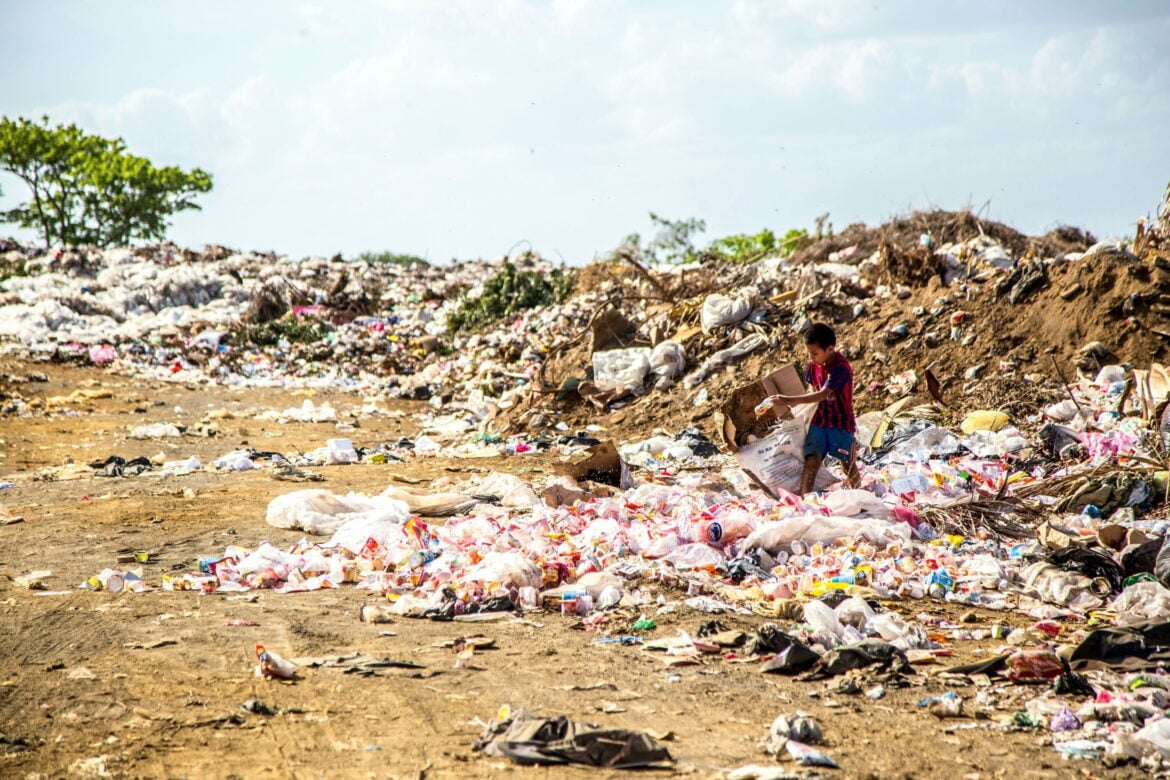The plastic industry has long pursued a campaign of deception, shifting the responsibility for plastic pollution onto consumers and distracting policymakers from pursuing real solutions, a new report from Planet Tracker says.
The report from the non-profit financial think tank, published last week, details how the industry has deployed various tactics over the years to move focus away from upstream measures such as pollution control.
But, with the world slow to act, the plastics crisis is spiralling out of control.
Plastic production is on course to triple by 2060, and lifecycle emissions set to more than double, with petrochemical companies geared up to be the main driver of oil demand. Yet, as production grows, plastic recycling remains negligible—a staggering 90 per cent is not recycled.
What’s more, according to the report, even if all plastic pollution inputs were halted today, marine microplastic levels in the ocean would still more than double by 2050. Some scenarios even project a 50-fold increase by 2100.
As plastic pollution grows and the climate crisis intensifies, the industry continues to peddle a familiar narrative that the crisis can be combatted with recycling and that the circular economy is the solution. Planet Tracker says that while recycling has a role to play in improving circularity, to date, it has proved a “flawed solution.”
Against this backdrop, the report calls out the industry’s greenwashing agenda, and its efforts to infiltrate and shape global decision-making.
Plastic Does Not Deserve Circular Reputation, Report Says
With a recycling rate of just 9 per cent, and a huge degree of regional variation within this, plastic does not deserve the reputation of being circular, the report says.
Indeed, globally, nearly half (49 per cent) of plastic ends up in landfills, and in some regions, the figure is even higher. In the US, for example, the figure stands at 73 per cent.
That said, according to the report, plastic waste mismanagement is high in all regions, with Asia leading at 34 per cent.
Moreover, many countries do not have a publicly funded collection system, and more than two billion people across the world lack access to solid waste collection.
However, even the top ten best recyclers achieve recycling rates of only 28 per cent of the total municipal waste they generate, and because the current availability of recycled plastics is unable to keep up with demand, virgin plastic production continues to rise.
Challenges also arise for a number of other reasons, including plastic products needing to be recycled in different ways, plastic being either very difficult or impossible to recycle, and the cost of recycling not being economically viable.
Industry Misleads Consumers, Distracts Policymakers
Despite all of these issues, the report illustrates how the industry is reading from the same script as big oil and gas when it comes to redirecting responsibility in order to protect profit margins.
“By promoting the illusion of recyclability the industry has effectively passed the financial burden of waste treatment onto local municipalities and waste-pickers, often the financially weakest link in the plastic supply chain,” explained John Willis, Director of Research at Planet Tracker.
This has shifted focus away from upstream measures, such as limiting production and adopting alternative materials, to what the Center for Climate Integrity called “a series of false solutions.”
Part of this campaign of deception, the report notes, is the co-opting of the recycling symbol.
Resin identification codes (RIC) were invented by the plastic industry, which subsequently surrounded them with a recycling symbol from the public domain.
By using these codes, the plastic industry has created the widespread impression that their plastic products can or are being recycled, again propping up the narrative that it is the solution to global plastic waste, it says.
According to the report, financial markets have also bought this narrative, placing plastic producers on the lowest equity risk premium in the plastic supply chain.
Beyond the financial markets, this misdirection is also playing out on the global stage, the report outlines.
Indeed, in the latest round of UN-led Plastics Treaty negotiations, petrochemical companies had a strong presence, with 196 fossil fuel and chemical industry lobbyists present—up 37 per cent from INC-3. There, they opposed including cuts to plastic pollution and advocated against the inclusion of polymer production in the treaty.
This heavy lobbying presence has been felt across other negotiations, too, with the report spotlighting the European Parliament’s latest round of voting on the Packaging and Packaging Waste Regulation (PPWR). These negotiations were described as the “most lobbied piece of EU legislation ever.”
Steps Towards Real Solutions
While the industry’s strategies have delayed action on plastic waste and pollution, the report calls for steps toward real solutions.
“Upstream solutions, including extended producer responsibility, taxation and regulation, must be examined to create a sustainable path forward. Recycling alone is unable to cope with existing, let alone rising, plastic waste,” commented Willis.
Plastic Tracker outlines that for equity investors, holders of long-dated bonds and loans, and insurers, plastics sector risks should now be priced into the cost of capital.
Indeed, the think tank encourages investors, lenders and insurers to “remain mindful” of the plastic sector’s full ledger of risks and ensure this is adequately priced into their plastic-related financial instruments.
The report also calls on investors to support its Investor Statement on the role of petrochemical companies in resolving plastic pollution to hold upstream players accountable for their role in plastic pollution.
“We encourage stakeholders to factor in the true costs of plastic pollution now,” said Willis.
By Madaline Dunn, Lead Journalist, ESG Mena.



